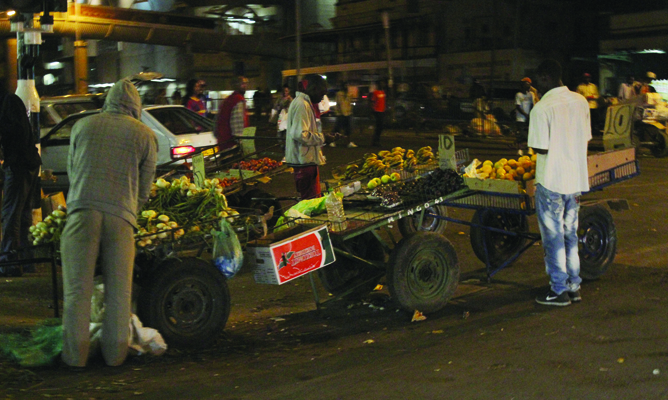
The government’s June 26 deadline to remove vendors from illegal points in the central business districts in towns and cities across the country has come and gone, but the chaos remains.
Local Government minister Ignatius Chombo and members of the Joint Operations Command (Joc) – a cluster of commanders of the army, police and intelligence — who made the order have since gone quiet after their unorthodox directive caused an outcry.
The government was criticised for trying to use the army in trying to control the ballooning informal trade that is a direct result of the economic collapse of the last decade.
Some organisations had to go to court to make sure the military stays out of the civic matter before the volte-face by Defence minister Sydney Sekeremayi who said the army would not be involved.
However, the processes and tug of wars that followed the Joc order have helped expose the role of politicians in fomenting the chaos on the streets especially in Harare, where the so-called space barons have taken over.
There is a coterie of greedy politicians who are benefiting from the illegal trade on the streets and the majority of the illegal vendors who often toil for a pittance are the victims.

According to a report we carried yesterday, Harare City Council has been divided by the vendors issue on political lines.
- Chamisa under fire over US$120K donation
- Mavhunga puts DeMbare into Chibuku quarterfinals
- Pension funds bet on Cabora Bassa oilfields
- Councils defy govt fire tender directive
Keep Reading
Council’s management is reportedly taking orders directly from government, which is in favour of the immediate removal of the street traders despite concerns that no alternative sites have been set up to accommodate the vendors.
The affected vendors have also raised concern that the new sites would not attract customers and have no sanitary facilities, but council management appears undeterred in implementing the government directive.
On the other hand, the councilors, most of them from the MDC-T, claim to be on the side of the vendors and would do everything to frustrate the relocation.
MDC-T has actually directed its councillors not to sanction the forced removal of the vendors.
The outcome of such political contestation would be that when two elephants fight, it is the grass that suffers.
Both MDC-T and Zanu PF have to stop using vendors as pawns in their political games.
Uncontrolled trading on the streets has economic and health implications for the affected local authorities.
A well-thought-out informal trade policy is pertinent to address the problems that the government has identified and political considerations should not be allowed to dictate the realignment process.
The clean-up exercise in Harare should involve the elimination of gangs that extort money from vendors using the ruling party’s name. Registration of vendors and allocation of vending sites must be done in a non-partisan manner and anything short of that would worsen the problem of uncontrolled trade on the streets.
MDC-T’s stance of insisting on an orderly resolution of the problem is logical, but it has to be backed by alternatives.
The party does not have to stop at criticisng and frustrating the relocation process, but it has to demonstrate that it has a better plan for the city’s poor.
Politics must not be allowed to cloud the organisation of vendors in a manner that restores their dignity.











